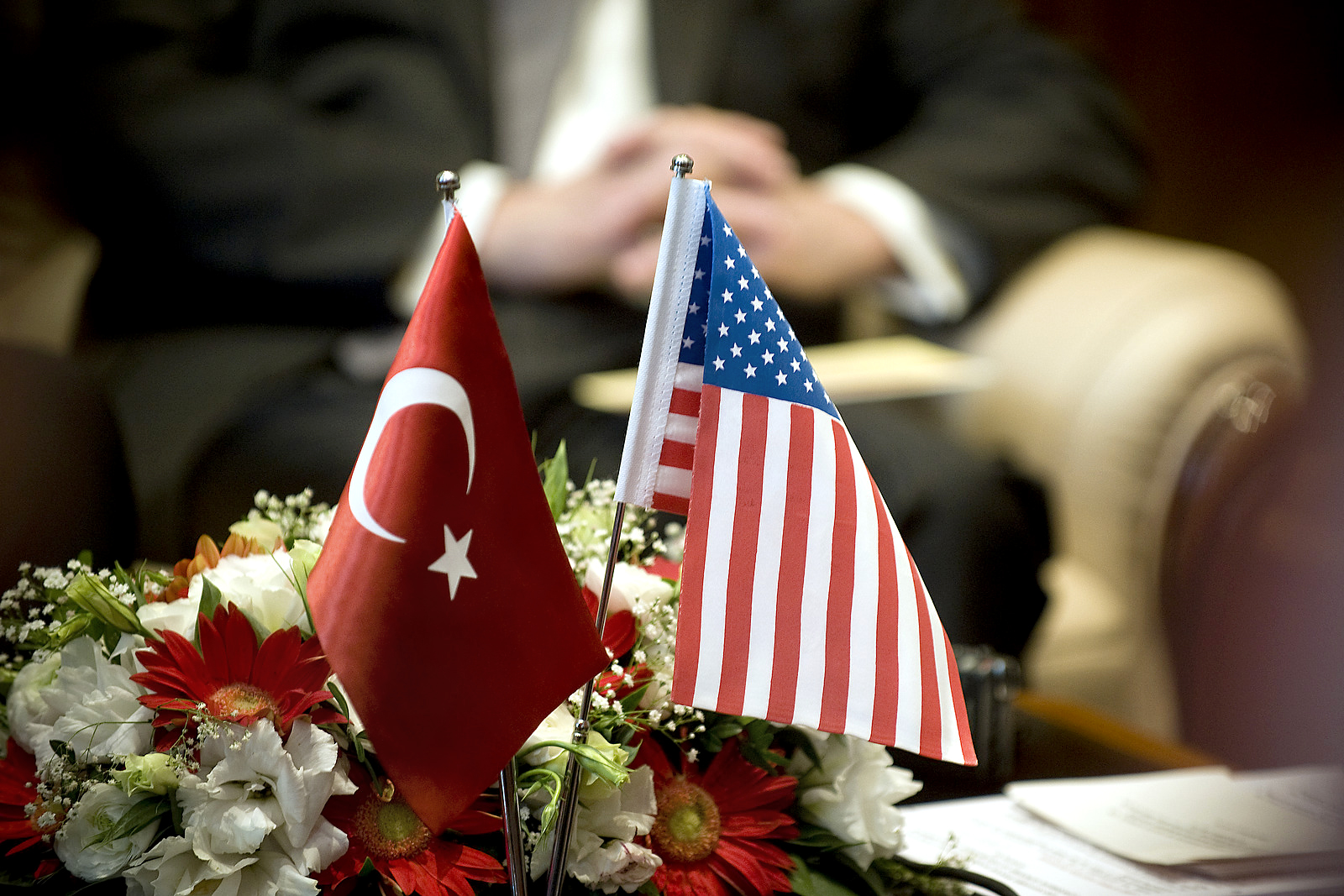The United States and Turkey have seen their relationships sour in recent years. Although both sides are allies and need each other, there have been indications of a rift as both of them have conflicting goals and interests. Recently American embassy has suspended all non-immigration Visa in all facilities in Turkey in response to the arrest of its staffs by Turkish authority. Ankara in retaliation has also suspended all US Visa application to the country.
This tit-for-tat strategy is rather swift. Turkey has said that those staffs are allegedly tied to FETÖ (Fethullah Gülen Terrorist Organization). This group is accused of being behind the failed coup attempt on 15 July 2016. Since then there have been arrests of several FETÖ members in the country.
The arrest of US embassy staffs and the subsequent decision to halt non-immigration Visa are the latest events of the tension between them. How could it reach this point? What has caused all of these?
read what does Russia want in world politics
Syrian War
Tension with the United States comes from the different approaches in the Syrian civil war. Turkey since the start of the war in 2011 supports the overthrow of Syrian president Bashar Al Assad by arming the opposition namely the Free Syrian Army. In contrast, the US and European powers are arming the Syrian Democratic Forces (SDF) and People’s Protection Unit (YPG). These two groups are Kurdish and are currently controlling the Northern part of Syria.
Turkey sees the Kurdish forces as a threat to its security and territorial integrity. We must understand that there are more than 10 million Kurds in Turkey and some of them are demanding independence or some form of autonomy from the Government in Ankara.
Turkish armed force has engaged in combatting the outlawed Kurdistan Worker’s Party (PKK) militia since the 1980s which saw the death of thousands of people. This group wants an independent Kurdish state separated from Turkey.
Operation Euphrates Shield in 2016 was launched by the Turkish military in cooperation with the Free Syrian Army to stop YPG and SDF from advancing any further in Northern Syria from the town of Jarabulus to Azaz. This operation created tension with the US coalition because they saw Turkish incursion into Syria as a possible catalyst for direct confrontation with the Kurds.
In such scenario, the Kurdish forces would be distracted from launching operations against ISIS elsewhere. This conflict of interests between Turkey and the coalition forces has created a rift in their relationship.
The Astana Talk between Turkey, Russia, and Iran has been done without US participation. The recent ceasefire agreement in Idlib province of Syria was, therefore, a demonstration that Turkey is looking eastward for an alternative.
15 July Coup Attempt
After the coup, Turkey was disappointed with the US. Instead of giving support for the government’s action against the coup plotters, Washington has condemned Ankara of violation of human rights and democracy. Of course, there have been arrests of military officials and civil servants whom Ankara accused of association with Gülen Movement.
Turkey said it is a necessity for the country to get rid of this “parallel state”. Under such condition, Turkey wants the support from its allies as it recovers from the coup. However, it is facing only criticism and condemnation.
The United States adds fuel to the fire as it refuses to extradite the leader of Gülen Movement who is still residing in the state of Pennsylvania. It has so far said that Turkish government did not provide sufficient evidence that Fethullah Gülen was inspiring the coup. Turkey, on the other hand, demands his extradition for trial. This issue is still a thorn in the relationship between the two countries.
Constitutional Referendum
On 16 April 2017 Turks went to polls to vote on a constitutional referendum. This referendum asked the people whether or not the country should switch from parliamentary system to presidential system. The government said it is a necessity because the presidential system would provide stability and better condition in dealing with terrorists.
The United States does not share this view. It has accused Turkish government of attempting to gain more power and violate democratic principles. This accusation does not sit well with Ankara government. It is very clear that Washington and Ankara no longer see each other eyes to eyes.
read independence of Catalonia: will it get out of control
Where will it lead to?
The sour relationship between them is likely to continue in the foreseeable future. Turkey has been looking eastward for alternative and supports. Russia, China, and Iran have become closer to Turkey as they do not address its domestic politics. Also, Turkish foreign policy is changing.
In Syria, Bashar Al Assad is no longer a priority for Ankara to get rid of. Its attention has turned to the growing power of the Kurdish forces as they directly threaten Turkey’s security.
The United States and Turkey still need each other. Turkey’s position as a bridge between Europe and Asia is strategic for any policy planners. Its proximity to the Middle East and Russia gives the country a lot of geopolitical leverage. There are mutual benefits in their cooperation. Yet, both sides first need to sort out their differences.
writer
Puthyraksmey Yama
Marmara University, Istanbul, Turkey
Department of Political Science and International Relations
